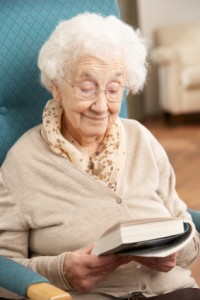Addressing the healthcare needs of “unrepresented” elders
In Paula Span’s column today in the New York Times’ New Old Age column, Near the End, It’s Best to Be ‘Friended’, she discusses the increasingly common situation of elders who have no representatives assigned to make healthcare decisions on their behalf.
She encourages seniors to dig deep into their social networks to find an appropriate candidate to become a healthcare proxy or to keep detailed directives in a location that’s accessible to healthcare providers.
Span notes state efforts to increase the number of people who can step into such a role — some states allow for a “close friend” or a niece, nephew or grandchild to become a medical decision-maker.
Healthcare organizations such as the Cleveland Clinic have created protocols to assist teams in medical decision-making for “unbefriended” elders who are without the capacity to express their own wishes. As the medical decisions become more serious — such as a surgery or a do-not-resuscitate order — two medical professionals and an ethicist must agree that the procedure is in the patient’s best interest. Withdrawing treatment requires two physicians and the approval of a subcommittee of the hospital ethics committee.
Long-term care facilities would benefit from establishing similar protocols and committees for what will undoubtedly become a more frequent circumstance as baby boomers — who are less often married and more often geographically isolated from relatives — enter our care in greater numbers.
For Paula Span’s article, visit: Near the End, It’s Best to Be ‘Friended’

